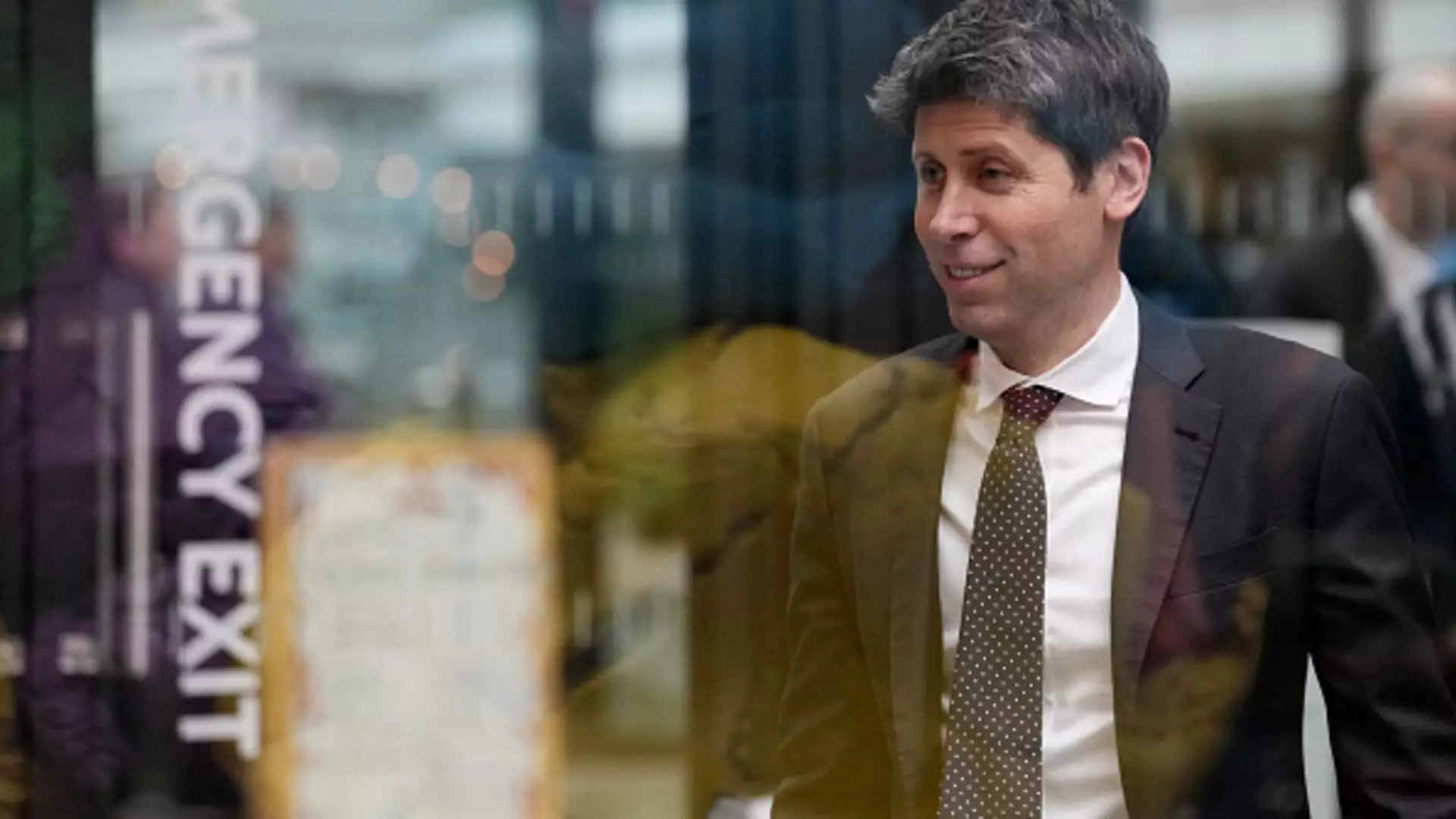In the rapidly evolving landscape of artificial intelligence, corporate strategies often oscillate between aggressive acquisition pursuits and an overarching quest for innovation. OpenAI’s recent attempts to acquire Cursor, a promising AI code-writing startup, serve as a pertinent illustration of this dynamic. The initial outreach occurred last year; however, negotiations faltered, only to be resurrected this year amid Cursor’s burgeoning popularity. Despite repeated efforts, the talks never materialized into a deal, underscoring the challenges inherent in high-stakes negotiations in the tech sector.
Cursor, owned by Anysphere, has captured the attention of tech giants, largely due to its sophisticated coding assistance capabilities which tap into the functionality of Anthropic’s Claude 3.5 Sonnet model. The enthusiasm surrounding Cursor is not unfounded; as evidenced by the success of similar platforms like Microsoft’s GitHub Copilot, it is evident that AI-powered coding tools have become indispensable in modern software development. This burgeoning trend points to a crucial transformation in the coding environment, where developers are increasingly reliant on AI to amplify their skills.
The Price of Progress: Windsurf Acquisition Talks
As OpenAI pivoted its focus towards another potential acquisition, Windsurf, the conversations have ignited speculation about the direction and priorities of the AI titan. With an astronomical price tag of approximately $3 billion attached to Windsurf, one might argue that such investments hinge on not only the technology but also the perceived worth of competitor dynamics in an accelerating market. The bold move signals OpenAI’s resolve to solidify its position within the AI coding space.
Interestingly, the decision to pursue Windsurf, despite Cursor’s allure, invites a critical appraisal of OpenAI’s strategic decision-making. Is acquiring a relatively expensive tool more advantageous than nurturing existing partnerships or fostering closer ties with rising startups like Cursor? This question mirrors concerns prevalent in liberal and progressive spheres, where the impact of corporate maneuvers on innovation ecosystems is scrutinized closely. The essence of innovation rests not only in acquiring cutting-edge technology but also in cultivating an environment that encourages creativity and collaboration.
The AI Arms Race and Industry Sentiment
Moreover, the overarching sentiment in the tech industry is gradually shifting as companies scramble to integrate AI into their ecosystems. Reports of programmers utilizing AI to manipulate hiring processes have sparked critical discussions about the ethics of AI in the labor market. This emerging crisis has prompted thought leaders, such as OpenAI co-founder Andrej Karpathy, to highlight the phenomenon of “vibe coding,” thus framing AI not just as a tool for efficiency but rather as a game-changer in how coding is perceived and executed.
The advent of “vibe coding” reflects a complex interplay between human intuition and machine learning capabilities, revealing a tension that runs deep within the tech community. Are developers becoming overly reliant on AI to the detriment of their own skills, or does the assistance provided by tools like Cursor enhance their capabilities in meaningful ways? These questions resonate profoundly within the realms of education and employment, especially as millions face the evolving expectations of coding fluency.
A New Era of Corporate Dynamics
The increasing involvement of venture capitalists further complicates these conversations, with heavyweights like Andreessen Horowitz backing startups that push the envelope in AI technology. It is baffling that, amid all this disruptive innovation, companies are still grappling with the fundamental question of how to ethically navigate the integration of AI into our everyday work processes. What does it mean for the future workforce, especially if a majority of developers are replaced or significantly aided by AI systems? The liberal perspective advocates for a conscientious approach to technology adoption, one that prioritizes human potential while being firmly rooted in ethical considerations.
In any case, as OpenAI cars towards its ambitious goals amidst fierce competition, industry watchers must remain vigilant. The stakes are high, and the ongoing saga of Cursor and Windsurf epitomizes the intense quest for supremacy in an industry poised on the brink of revolutionary change. The future of AI coding tools will undeniably reshape the present – but at what cost? The answers lie in the innovative endeavors we choose to embrace and the principles we uphold along the way.


Leave a Reply